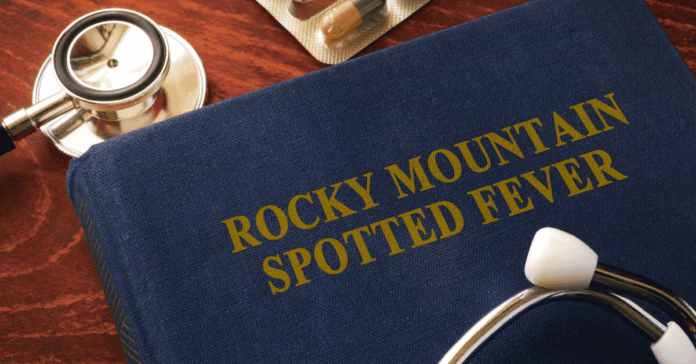Overview
Rocky Mountain spotted fever is a bacterial disease that gets transmitted through the bite of ticks. RMSF requires prompt medical attention to prevent severe damage to internal organs.
About the topic
Rocky Mountain spotted fever (RMSF) is a severe tick-borne disease. It usually results in headaches and fever. Anyone frequenting tick-borne areas is at the risk of contracting the disease. Although RMSF is a severe illness, it can be treated through prompt medical attention.
What are the Symptoms of RMSF?
You will notice the first symptoms of Rocky Mountain spotted fever within two to fourteen days after getting a tick bite.
The chief symptom associated with the disease is a non-itchy rash that starts on your wrist and ankles. Later, the rash spreads up to your arms and legs until it reaches the torso. It can also cover your palms and soles. The rash begins two to five days after the fever and looks like small red spots. Subsequently, the rash turns purple and red, indicating that the disease has progressed.
Other symptoms observed in RMSF are:
- High fever that persists for two to three weeks
- Chills
- Muscle aches
- Vomiting
- Severe headache
- Fatigue
- Poor appetite
- Abdominal pain
- Nausea
- Sore throat
- Neurological symptoms like confusion
In RMSF, headache and fever are usually the first symptoms to develop. The rash starts three to five days after the fever. An infected person should get treatment before the rash turns darker in color.
What are the Causes behind RMSF?
Rocky Mountain spotted fever gets transmitted through the bite of a tick infected with a bacterium called Rickettsia rickettsii. You can only acquire this bacteria through a tick bite. The longer a tick is attached to your body, the greater your chance of contracting an RMSF infection.
When to See a Doctor?
Rocky Mountain spotted fever requires immediate medical treatment. Infectious diseases like RMSF that get carried by ticks can rapidly progress into complicated conditions. If you know that you have recently got bitten by a tick and have any of the symptoms listed above, kindly-
Call 1860-500-1066 to book an appointment
If possible, take the tick with you to your doctor’s office for laboratory identification.
How To Prevent RMSF?
- Wear shoes and long pants that are tucked into your socks while walking in densely wooded areas.
- Clean your lawn and tick proof your lawn
- Thoroughly check your body for ticks after going through a tick-prone area.
- Remove ticks carefully by using a pair of tweezers. Do not squeeze or crush the tick. Pull the tweezer upwards steadily. Once you successfully remove the entire tick, wash the area with soap and water.
- Wash your hands thoroughly to ensure the elimination of any infected fluid.
Complications associated with Rocky Mountain spotted fever
If not treated at the right time, RMSF can cause damage to the inner lining of your blood vessels. It can lead to several complications like:
- Inflammation of the brain (Encephalitis)
- Inflammation of the heart and lungs
- Kidney failure
- Dead tissue (Necrosis)
- Enlargement of the liver or spleen
- Neurological deficits
- Deafness or hearing loss
- Muscle weakness
- Partial paralysis
What are the Treatment Options for RMSF?
Generally, doctors prescribe an oral antibiotic called doxycycline to treat Rocky Mountain spotted fever. Doxycycline is the preferred drug to treat both children and adults. Pregnant women might be prescribed chloramphenicol instead of doxycycline.
According to the CDC, you should start taking the prescribed antibiotic as soon as RMSF is suspected. Delay in treating the disease can lead to complications. The ideal goal for the treatment of RMSF is to start the treatment within the first five days of the disease.
It is necessary to take your antibiotics as directed by your doctor. If you don’t receive the treatment within the first five days, you may require intravenous antibiotics. If your condition is critical, then your physician might advise hospitalization to avoid further complications.
Conclusion
Rocky Mountain spotted fever is a bacterial illness that spreads through tick bites. If you feel ill or develop a rash after a tick bite, you can request an appointment at Apollo Hospitals.
Frequently Asked Questions (FAQs)
- Is RMSF contagious?
No, RMSF is not contagious and only spreads through infected tick bites.
- Will I develop a rash if I have RMSF?
Most of the people infected with RMSF develop rashes. However, 10 to 15 percent of people don’t develop a rash at all.
- Which states in India have reported cases of RMSF?
In India, RMSF cases have been reported from West Bengal, Tamil Nadu, Maharashtra, Uttaranchal, Assam, Rajasthan, Karnataka, Jammu and Kashmir, and Himachal Pradesh


















